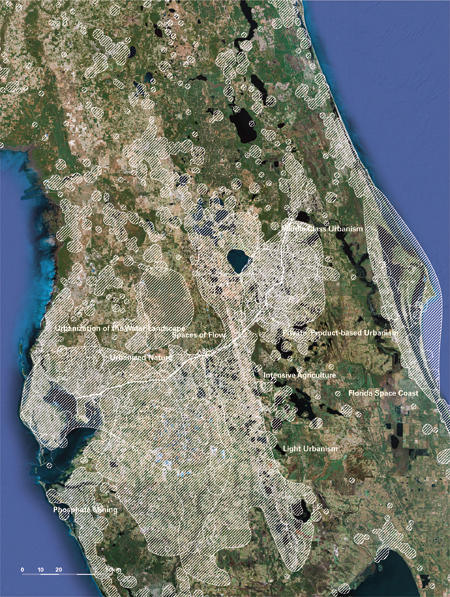Florida - Crossing American Territory, 2011

Investigating Specificity
ETH Studio Basel has been working for five years on urban portraits of international metropolises. This research was part of a joint program dealing with "specificity": Our aim was to show why cities that are drawn into the undertow of global developments do not, as might be expected, become immersed in placeless uniformity, but develop new differentiations.
In the most general sense, this research raised the question of which role "identity" will play in a world that tends to set off similar mechanisms of urban development across the globe. In brief, the results can be summarized as follows: The differences and specificities that these metropolises develop are different from the traditional hallmarks of identity in organically evolved cities. But they have retained the dual ? and ambiguous ? character that has always distinguished the special traits of cities. The new qualities, of course, also exhibit the characteristics of a "culture of difference"; they showcase the determination of an urban society to establish non-exchangeability, i.e., identity, under the new conditions. But urban differentiation is by no means only a matter of agenda. Differences that are not the result of intentional action are evidence of the fact that globalization is inevitably subject to the physical nature of the location and the anthropological conditions. Globalization can neither overcome topography or the climate, nor can it exceed the limitations of resources or the local exposure to the forces of nature. "Specificity", one might say, is also the doomed attempt of mankind to shed the bonds of discrete, conditional existence completely in favor of a global promise.
The Topics are:
Private, Product-Based Urbanism
Light Urbanism
Middle Class Urbanism
Phosphate Mining
Intensive Agriculture
Spaces of Flow
Water Management
Nature Protection
Nature, Tourism and High Security
Urbanisation of Downtowns and Plazas

